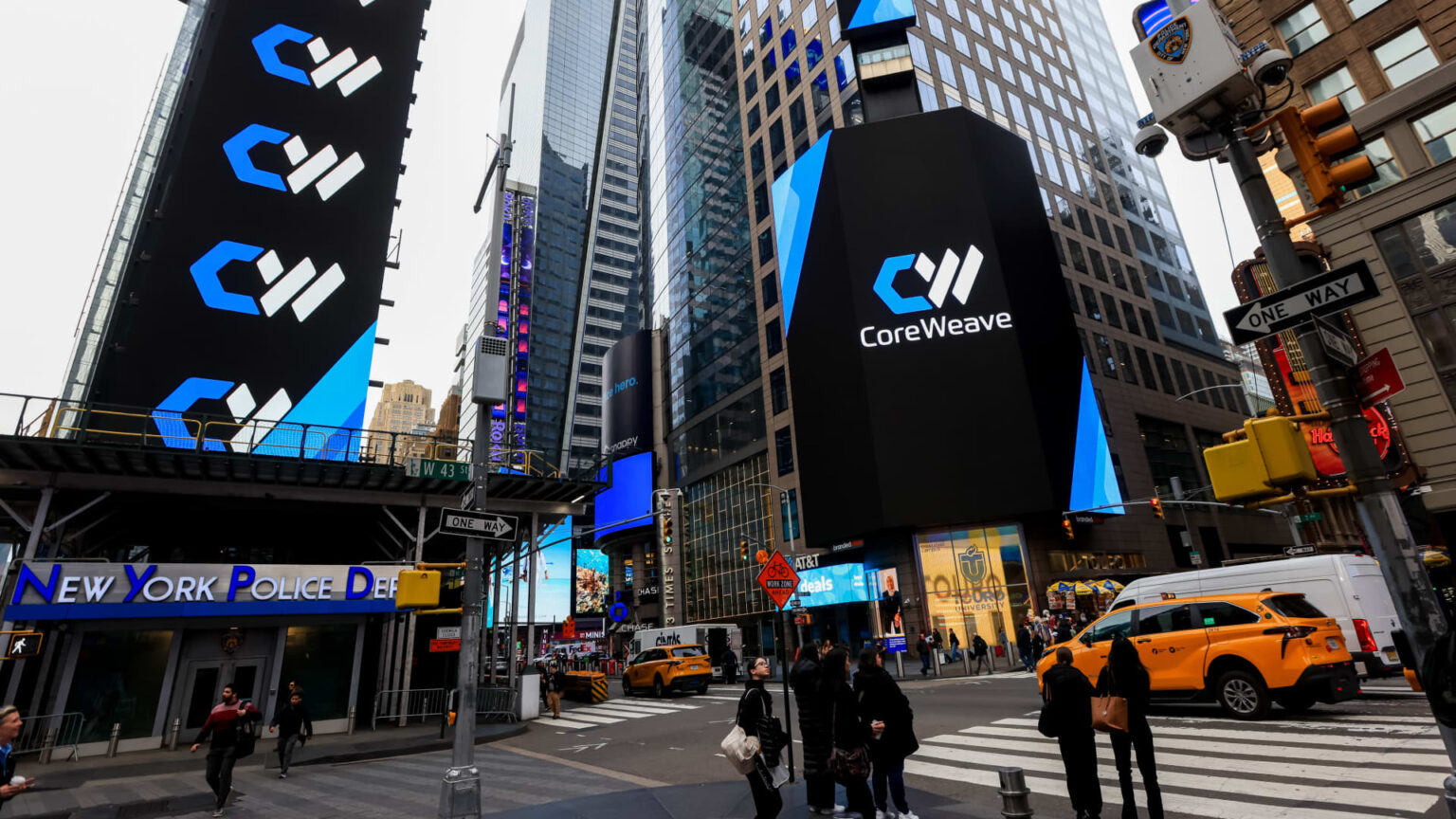Michael Intrator, founder and CEO of CoreWeave Inc., Nvidia-backed cloud services provider, attends his company’s IPO at the Nasdaq Market in New York City on March 28, 2025.
Brendan McDermid | Reuters
Wall Street banks waited a long time for a billion dollar IPO from a U.S. tech company. They’re not making much money from the one they got.
The underwriting discount and commissions paid by artificial intelligence infrastructure provider CoreWeave, which hit the Nasdaq on Friday, amounted to just 2.8% of the total proceeds, according to a Monday filing with the Securities and Exchange Commission. That means that of the $1.5 billion raised in the offering, $42 million went to underwriters.
That’s on the low side historically. Since Facebook’s record-setting IPO in 2012, there have been 25 venture-backed offerings for tech-related U.S. companies that have raised at least $1 billion, with an average underwriting fee of 4%, according to data from FactSet analyzed by CNBC. Facebook, in raising $16 billion, paid out the lowest percentage at 1.1%.
Morgan Stanley, which led the Facebook IPO, had the coveted lead left spot on CoreWeave, followed by JPMorgan Chase and Goldman Sachs. The three banks are typically the leaders when it comes to tech IPOs. They’ve been counting on a revival in the market under President Donald Trump after a lull dating back to the end of 2021, when soaring inflation and rising interest rates put a halt on new offerings.
But CoreWeave’s initial trading sessions aren’t providing much confidence in a rebound. After lowering its price to $40 from a range of $47 to $55, CoreWeave failed to notch any gains on Friday and fell 7% on Monday to $37.20.
Declines in the broader market have weighed on CoreWeave, but investors also have specific concerns about the company, including its reliance on Microsoft as a customer, its hefty level of debt and the sustainability of a business model built around reselling Nvidia’s technology.
CoreWeave is the first among venture-backed companies to raise $1 billion or more since Freshworks in September of 2021. Freshworks carried an underwriting fee of 5.3%, while UiPath, which hit the market a few months earlier, paid 5%. In April of that year, AppLovin carried a 2.6% fee, the last time a billion-dollar offering had a lower fee than CoreWeave’s.
Among the few more recent IPOs — which all raised less than $1 billion — the fees were much higher. For Instacart and Klaviyo in 2023 and Reddit, Astera Labs, Rubrik and ServiceTitan last year, payouts were all at least 5%.
As lead in the CoreWeave deal, Morgan Stanley was given the highest percentage allocation of shares for clients at 27%. JPMorgan received 25%, and Goldman Sachs got 15%.
Those percentage allocations typically correspond fairly closely to how much of the fees each bank receives, though with a slightly higher amount to the lead bank for the management fee piece.
David Golden, a partner at Revolution Ventures who previously led tech investment banking at JPMorgan, said “there’s a little ‘black box’ involved in the underwriting compensation” that’s not disclosed in the prospectus. Based on his experience with IPOs and the historical norm, Golden estimated that Morgan Stanley got at least $13 million for its work, amounting to just over 30% of the total payout, while the number for Goldman Sachs would be slightly above $6 million.
Representatives from Morgan Stanley and Goldman Sachs declined to comment. A spokesperson for JPMorgan didn’t immediately respond to a request for comment.

https://www.cnbc.com/2025/03/31/wall-street-banks-got-meager-payout-from-coreweave-ipo-.html




